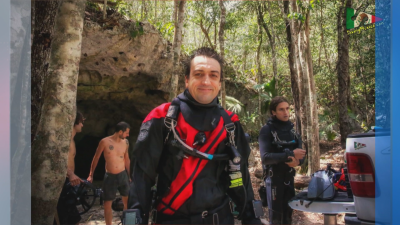Bomb threats were reported at numerous schools across the country this morning, January 22, as confirmed by the Ministry of the Interior (MoI) to BNT.
The threats have affected not only Sofia but also other cities, including Sliven, Stara Zagora, Plovdiv, Vratsa, Kardzhali, Shumen, Razgrad, Burgas, and Varna.
It is not only Sofia, but also other cities in the country, such as Sliven, Stara Zagora, Plovdiv, Vratsa, Kardzhali, Shumen, Razgrad, Burgas and Varna.
The threats were discovered when schools opened their e-mails this morning. The Ministry of Interior stated that they are investigating and taking appropriate actions in response to the threats.
The school managements will decide whether the teaching process will be suspended.

Reports of explosive devices being planted have been sent to four schools in Varna. Police are are currently investigating the reports, the regional education department said. Classes have not been suspended. The threatening messages were sent to the schools' old e-mail addresses.
In Stara Zagora, bomb threats were sent to all schools. The emails containing the threats were received on the schools' e-mails. Students were evacuated, and police teams began inspections. So far, nothing suspicious has been found.
Similar reports have been received in several other settlements within the Stara Zagora Municipality. No threats were made towards kindergartens or schools there.

Bomb threats were also received at three high schools in Plovdiv this morning via e-mail. Police protocols were immediately activated, and inspections were conducted at the affected schools. Classes were temporarily halted at the Vocational School of Transport and Technology "Gotse Delchev," the Vocational High School of Architecture, Civil Engineering and Geodesy "Arch. Kamen Petkov," and the National Trade High School, but after police checks on-site, lessons resumed.
The threats were sent to old "abv.bg" e-mails that are no longer officially used by schools in Plovdiv, according to the Regional Education Department. However, some schools still maintain these accounts due to their past popularity. Upon receiving the first bomb threat reports, all 192 school principals in the Plovdiv region were instructed on how to respond and avoid risks associated with using old e-mail accounts.

At the French Language School "Georgi Stoykov Rakovski" in Burgas, a threat was sent about planted explosive devices. The police are investigating the report, and students were evacuated to the school yard. The threatening message was sent to the school's official email.
"In the morning around 8:00 AM, the school secretary opened the school’s email and saw the message about an explosive device. We immediately followed the procedure outlined in the bomb threat response protocol introduced in March 2023. We informed 112 and the 4th Regional Police Department, who came and conducted a thorough check of the premises. Nothing suspicious was found, and we decided to continue with lessons without interruption," said Anna Kalcheva, Deputy Director of Academic Activities at the 35th School "Dobri Voynikov" in Sofia.
Students shared their observations:
"There was police here, but I didn’t really understand the reason."
"Two police officers, a man and a woman, entered the school."
BNT: Did they take you out of class?
"No."
BNT: How long did the police stay here?
"Probably about 10 minutes."
"Around 9:30 AM, Mr. Yanev opened the message, and we realised there was a threat. We immediately called 112 and followed the necessary procedures. Together with the teaching staff, we began checking for suspicious packages. Then, the police arrived, and we evacuated the students and staff. The building was checked for about an hour, and after no suspicious items were found, we resumed classes at around 11:00 AM," explained Dimitar Nikolov, from the High School "Prof. Dr. Asen Zlatarov" in Haskovo.
The Cybercrime Department of the General Directorate for Combating Organised Crime (GDBOP) is investigating the malicious bomb threat emails sent to schools across the country. They are working in collaboration with foreign hosting companies and both domestic and international partner organisations and services.









 Чуй новините
Чуй новините Подкаст
Подкаст
























